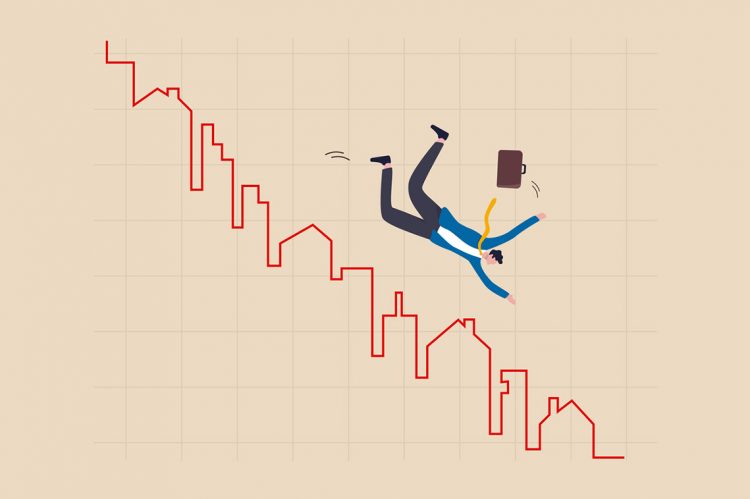Potential homebuyers aren’t seeing much light at the end of the tunnel as long as inventory and affordability challenges maintain their presence in the housing market. This was evident as recent data from Fannie Mae showed that consumer sentiment toward buying homes dipped for the seventh consecutive month.
The organization’s Home Purchase Sentiment Index (HPSI) decreased by 1.2 points to 60.8 in September, dropping to its lowest point since October 2011.
A significant factor leading to the retracting sentiment, according to surveyed consumers, has been climbing mortgage rates that are exacerbating affordability constraints on buyers.
Respondents are expecting mortgage rates to continue rising over the next 12 months, while more consumers than not expect home prices to decline—a first since May 2020.
Nineteen percent of consumers said it was a good time to buy a home in September—down from 22% in August—while 59% indicated that it’s a good time to sell.
“Consumers’ expectation that home prices will decrease matched a survey high, with a higher percentage of consumers believing home prices will decrease rather than increase over the next year—a shift in survey sentiment that had previously only happened in 2011 and at the start of the pandemic in 2020,” said Doug Duncan, Fannie Mae senior vice president and chief economist.
“Moreover, 75% of consumers still think it’s a bad time to buy a home, with most citing high home prices and unfavorable economic and mortgage rate conditions as primary reasons,” Duncan continued. “As long as supply is limited and affordability pressures continue to constrain potential homebuyers via elevated home prices and mortgage rates, we expect home sales will remain sluggish.”
Home Purchase Sentiment Index – Component Highlights
Fannie Mae’s Home Purchase Sentiment Index (HPSI) decreased 1.2 points in September to 60.8. The HPSI is down 13.7 points compared to the same time last year.
- Good/bad time to buy. Nineteen percent of respondents said it is a good time to buy a home in September—down from 22% in August. The percentage that said it was a bad time to buy increased from 73% to 75%.
- Good/bad time to sell. The portion of respondents who said it was a good time to sell a home remained unchanged at 59% in September, while those who said it was a bad time to sell decreased from 35% to 33%.
- Home price expectations. Thirty-two percent of respondents said home prices will go up in the next 12 months—down from 33% in August—while 35% said home prices will go down—up from 33%. The share who think home prices will stay the same remained unchanged at 28%.
- Mortgage rate expectations. The portion of respondents who said mortgage rates will decline in the next 12 months dropped from 11% to 9%, while those that expect rates to rise increased from 61% to 64%. The share who think mortgage rates will stay the same decreased from 25% to 20%.
- Job loss concern. The percentage of respondents who said they are not concerned about losing their job in the next 12 months decreased from 79% to 78%, while those who said they are concerned remained unchanged at 21%.
- Household income. The percentage of respondents who said their household income is significantly higher than it was 12 months ago increased from 25% to 26%, while those who said income is significantly lower decreased from 15% to 11%. The percentage who said their household income is about the same increased from 59% to 61%.
Read the full research report for additional information.












